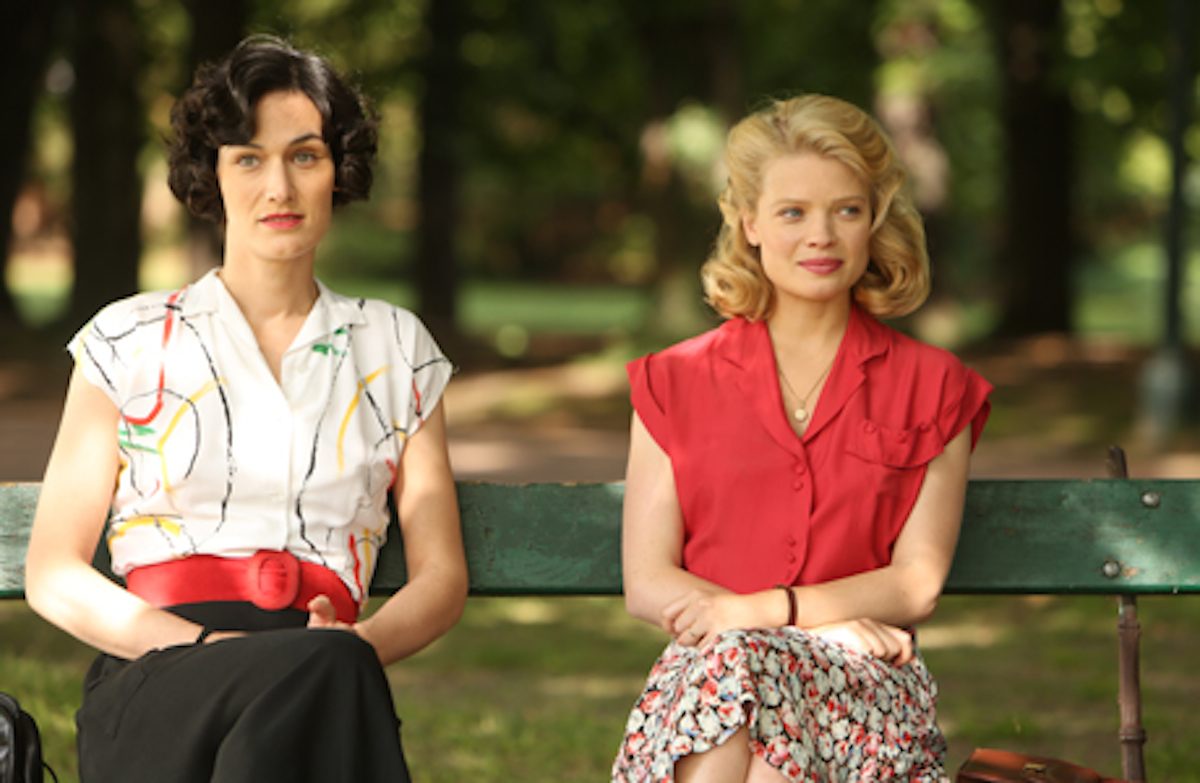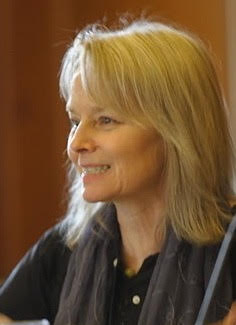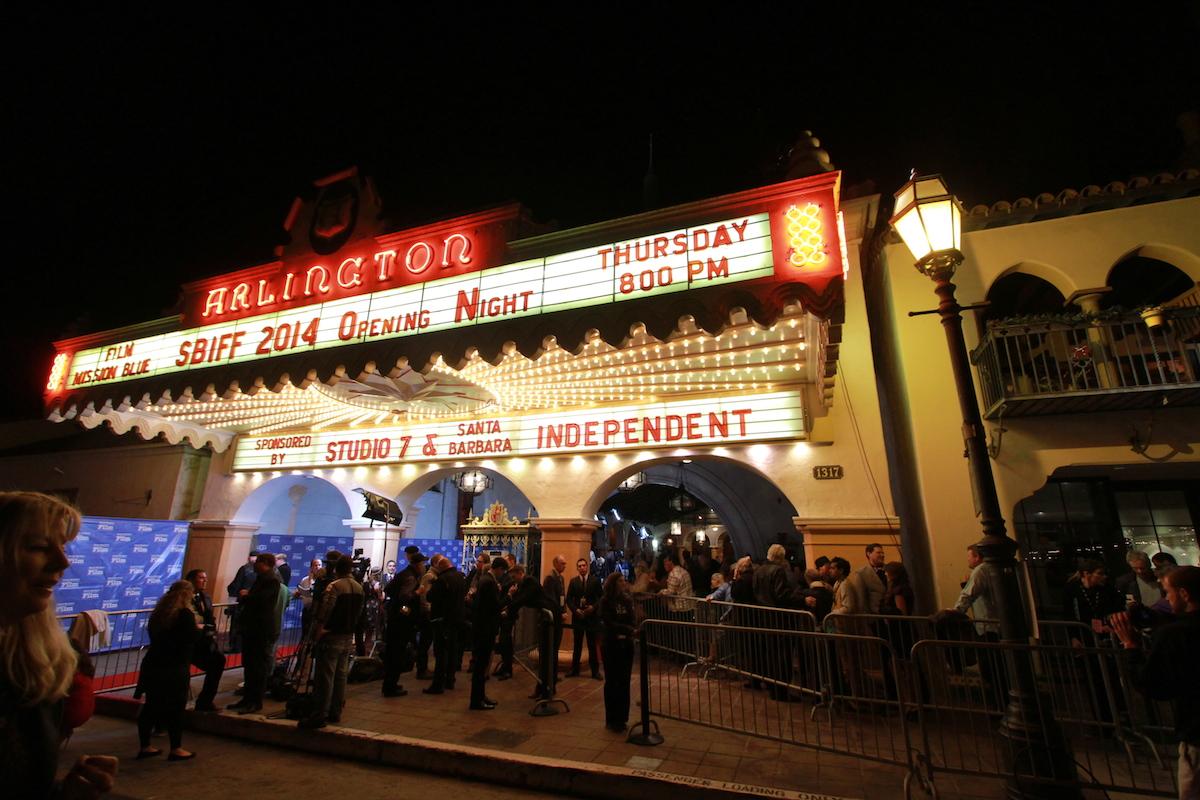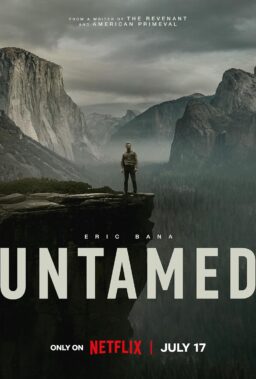Roger Ebert loved film festivals of every size. He loved the conviviality of watching movies in theaters with other movie lovers. And he heralded their value in enabling folks to see the “small” and unusual films—foreign, independent, animated, documentary—that might not ever reach them otherwise.
I first spotted Roger at Telluride (my own first film festival) in the 1970s, but didn’t meet him until EbertFest 2011. Five months earlier, when reprinting my Denver Post article about working with Oliver Stone on “Talk Radio,” he’d invited me to become an FFC. My initial foray was covering 2011’s Santa Barbara International Film Festival, about which I’ve written each year since.
Opening this year’s fest, 2000 eager people sold out the classic 1931 Arlington Theatre for the world premiere of “Mission Blue,” a documentary centered on world-renowned oceanographer Dr. Sylvia Earle, still diving at 78, still lecturing worldwide most of the year, and her crusade to save our frighteningly imperiled oceans. Co-directed by Robert Nelson and Fisher Stevens (“The Cove,” which Stevens produced, won the Oscar for Best Documentary in 2009), the film, packed with superb ocean and underwater footage, including a startling sequence from Australia’s Great Barrier Reef, is a clarion call. Later I heard some grumbles about too many shots/too much bio of Earle, but many others in this environmentally aware town were shaken by its convincing portrayal of our oceans in distress, and possibly moved to change. (It worked for me: this “pescatarian” immediately gave up eating fish.)
With almost 200 films showing in 10 days, plus tributes to David O. Russell, Cate Blanchett, Oprah Winfrey, Robert Redford, Martin Scorsese together with Leonardo DiCaprio, and four panels, selecting what to see is dauntingly serious business. Especially when, after two to three films per day, my head begins to explode with stories/images/stimuli.

“For a Woman”
Early Friday morning I jumped into promising territory—the foreign titles, seeing “October November” (Austria; Götz Spielmann, director) and “For a Woman” (France; Diane Kurys, director) back-to-back at the Metro Four. By chance, the themes prove similar: one generation’s WWII-era father nearing death, his adult daughters grabbing one last opportunity to know and understand him better while also trying to learn about themselves. Both are good. “October November” explores the lives of two not so happy, very different sisters, reuniting at their aging father’s side in a complex, interwoven tale; its difficult deathbed scene, disturbing to many, seemed very accurate. But as an enduring partisan of Kurys’s work (“Entre Nous” was 1984’s Best Foreign Film), I favor her newest for its sweet humor, story range (the unfolding of their late mother’s tragic secret, known by her husband but hidden since the war) and its sharp, emotional truth.
Having heard David O. Russell speak not so long ago (also because I wasn’t crazy about “American Hustle“), I passed up the Outstanding Director Award to catch “The Past,” Iranian director Asghar Farhadi’s latest, a closely observed film about physical displacement (from home, from one’s native country) and close relationships ending, shifting, circling back. This work, asking “Can we ever escape the past?”, made me think of Ingmar Bergman as I watched its searing scenes. Farhadi again deserves the raves (see Godfrey Cheshire’s review). If it doesn’t reach a nearby theater soon, watch for it on demand.
Afterwards it was back to the Arlington, as respected Hollywood PR maven Carol Marshall, guiding SBIFF through most of its 29 years, had invited me to the Russell after-party. As the crowds streamed away, I ventured next door to the glitzy Hennessy-sponsored private event where a dazzling waitperson (leggy, white blonde hair, tight mini-dress) offered me a “very old” cognac. I was nervous, not at all good at chit-chat, but film blogger Sasha Stone (AwardsDaily.com)—who reads the FFCs—rescued me by recounting having once debated a film with Roger online, how she felt “outclassed by his knowledge, but also awed” to have the experience. “I’m debating Roger Ebert!,” she marveled.
I dared to ask a well-known, often waves-making entertainment writer, who covers many festivals, which films he’d recommend. His grave reply: “Santa Barbara is not about the films.” Just as I was about to say, “Well, it is to all these people buying tickets—and it is to me,” SBIFF Executive Director Roger Durling proposed a toast to Russell, who appeared both honored and bemused. I raised my glass, then quietly slipped away toward home.
SBIFF, by proximity (75 miles north of L.A.), always occurring so close to the Academy Awards (March 2nd this time)—and perhaps by growing reputation—draws many Oscar nominees each year, including for terrific panels. The Producers’ Panel, ably moderated by John Horn of the Los Angeles Times, brought together Robbie Brenner (“Dallas Buyers Club“), Dana Brunetti (“Captain Phillips“), Dede Gardner (“12 Years a Slave“), Joey McFarland (“The Wolf of Wall Street“), Charles Roven (“American Hustle”), Gabrielle Tana (“Philomena“) and Ron Yerxa (“Nebraska“) for an exchange of stories, camaraderie and jokes.
Veteran producer Yerxa, whose well-timed quips had the crowd laughing, applauded “the rush of idiosyncratic films this year,” while Dede Gardner lamented “the immediacy with which everybody now has to respond to a movie. That makes me sad.”
Interestingly, among the films represented, six—all but “Nebraska”—are based on true stories, which several panelists agreed can be what attracts them to a project.
We learned it took 20 years to bring Ron Woodroof’s life story to the screen and that, to meet the budget, “Dallas Buyers Club” was actually filmed without a lighting package. “No lights except truck lights in one scene,” Brenner said. “Two takes per scene.” In a film with 6 Academy Award nominations and nearly certain to win some (Matthew McConaughey likely for Best Actor; Jared Leto with a lock on Best Supporting Actor), that’s beyond impressive. And I hope some Oscars will cause more people to see this really terrific movie.
Back on line at the same theater, the Lobero (newly restored and a pleasure to experience), I eavesdropped on others’ conversations, trying to pick up comments on what they’ve seen, and maybe a tip or two. The crowd has many baby boomers like me and many retired folks, a lively group which includes 80 “Road Scholars” (previously called Elderhostel), along with annual travelers to the festival, escaping (as they told me) the cold of Connecticut, New York, Wisconsin. I was happy to also notice “younger” people (i.e., under 35)—the contingent needed to keep film and brick-and-mortar movie theaters alive.

“God’s Slave”
“God’s Slave,” the first feature by Venezuelan director Joel Novoa, was inspired by actual events around the 1994 AMIA bombings in Buenos Aires. The story cuts between an Islamist militant physician and a chief investigator for Israel’s Mossad, both of whom lost fathers to political violence when they were boys. One is on a bombing mission he’s been destined for since childhood; the other on a mission to stop him. Well-written by Fernando Butazzoni, with riveting cinematography by Carlos Luis Rodriguez, and illustrating how all religious beliefs can sometimes lead to tragedy, it went on to win both the Nueva Vision and Best Spanish Language Film awards at SBIFF.
Brain at boggle now, with the films I’d seen seeming to run together, I took a break for Joe’s Cafe just down State Street, sitting at the counter as I have each year. A day later I had lunch here with the charming director/producer/cinematographer Sylvia Johnson, born in Bolivia, partly raised on a ranch in Colorado. She was at the festival with “Roaming Wild,” a solid and informative doc about America’s iconic wild mustangs, and the maddening controversy over how to manage their growing numbers.
It should do well, and I look forward to her next one.
I checked in with Katy Zisk at the press table, then walked past crowds of fans for The Virtuoso Awards. These are given for standout performances, often from emerging artists such as Brie Larson (“Short Term 12“) and Michael B. Jordan (“Fruitvale Station“), both appearing on tonight’s panel moderated by Fandango’s Dave Karger. Joining them are: 84-year-old veteran actress June Squibb, whose delicious, sassy turn in “Nebraska” has brought her a Best Actress Nomination; and, at 42, seasoned actor Jared Leto, returning to film after a six-year hiatus with an astonishing performance as Rayon, the transgendered, HIV-afflicted character in “Dallas Buyers Club.”
When Leto came onstage, a heckler, said to be transgendered, shouted from the audience that he could never believably play such a character. It’s the kind of thing that gives a festival apoplexy, but in response, a remarkably poised and gracious Leto explained how seriously he took the subject matter and his role, and even offered to meet with this challenger backstage (something he did in fact do).

“My Sweet Pepper Land”
“My Sweet Pepper Land,” a selection of Un Certain Regard at Cannes, may just be my favorite film this time. Directed by Hiner Saleem and shot in a remote area of Kurdistan, it’s described as a modern Kurdish interpretation of the spaghetti western. Some may have expected more humor from that logline (and it is often funny), but it’s also a subtler take, bringing together a former war hero and a school teacher (an “old maid” at 26), both modern people in this place of ancient traditions. I found this film a journey I’d never make otherwise—totally immersive, with those endless, empty mountainscapes, fascinating characters, and believably hope-filled ending. Not to mention the lead, Iranian actress Golshifteh Farahani (last year’s “The Patience Stone“), whom I will now see in anything.
On line again, I was planning to attend one film I was iffy about, until a woman from the San Francisco Film Society changed my mind. Instead I go for the five Dramatic Shorts, and am glad I did. Among them, “Little Secret” (Czech Republic; Martin Krejci, director) is a flawless 20-minute film about a young boy whose lie to his single mother mushrooms, becoming a tale of youthful mistakes and moral consequences. Krejci, who did Q&A after the screening, always works in this short format and it shows.
“They Came at Night” (Congo/USA, directed by Andrew Ellis and Alex Mallis) imagines an abducted child soldier, escaping Joseph Kony’s real-life Lord’s Resistance Army (LRA) to return to the home he hasn’t seen for years. Encountering villagers victimized by the LRA, he’s held prisoner again while they decide whether to kill him or help him on his way. This believable and very effective film was made by the human rights groups Invisible Children and DTJ with a remarkable goal: to encourage reconciliation, not revenge, in these war-ravaged places. It’s now being circulated among villagers and shown to government officials. In fact, as its tagline is “This Film Was Not Made for You,” it’s possible (and ethical) to watch all 19 minutes right here:
They Came at Night from DTJ on Vimeo.
I came away from these films surprised by their quality and ability to tell a complete story in that short form, forced to examine some unrealized bias I may have had before.
All five of the Best Foreign Film nominees were screening but, having already seen Denmark’s exceptional “The Hunt,” I managed only one other: Belgium’s “The Broken Circle Breakdown.” Before the film, the Lobero courtyard filled with umbrellas buffering a bit of rare and blessed rain in California’s drought-driven warmth. I sat with my friends Robin Schievink and Dorothy Sewell, a retired film editor and serious moviegoer, always there through the credits as most people leave.
“Breakdown” features Belgian film star Veerle Baetens (“Elise”) and Johan Heldenbergh (“Didier”) from a play he wrote and starred in. Didier is a musician whose love of American bluegrass has led to forming a band. Elise is a freewheeling tattoo artist. It’s love at first sight. The story ranges over their start as a couple—lovely, sexy sequences together—an unexpected child that he doesn’t want at first but then falls for madly, the illness of the child, the challenges caused by that illness and ultimate loss, the grief and coming apart of the couple. And music, always music. Immediately drawn into this captivating film, which is wonderfully acted by people who can really sing, I was leaning forward in my seat, believing throughout that these characters were real.
Then toward the end an odd thing happens: in a scene onstage with the band in concert, Didier begins to rant—and rants and rants. The supposed issue, which seems tacked on to an otherwise seamless script, threw me out of the picture, leaving me puzzled and sad. Why is it in there? Afterwards director Felix van Groeningen explained the very premise of Heldenbergh’s play depended on this idea. My bet is that, in securing rights and participation from Heldenbergh, he had to agree to keep it in the film’s script. Too bad and guess I’ll never know. I still love the film but with that not insignificant caveat.

Photo Credit: Rebecca Sapp
Robert Redford was honored with the American Riviera Award, coming on stage to a standing ovation from 2000 fans. He’s known to loathe public appearances, usually avoiding them, and admitted up front to moderator Leonard Maltin that he’s “shy. I don’t know why. I just am.” Yet he was generous and talkative in a conversation intercut with clips from many films over a tremendous 50 year career. And, at 77, weathered and rather crinkly, he nevertheless looks great, clearly still animated by filmmaking and ready for what’s next.
Someone told me afterwards, “Redford’s not my favorite actor.” Wanting to reply, “Do you know how important he is to film?” (for his own work, both acting and directing, and of course for Sundance), instead I bit my tongue.
Among the half-dozen independent films I saw are three, all set in American cities, which could be deemed “coming of age” pictures:
—”Night Has Settled” (Steve Clark, writer/director), set in NYC in 1983, is about a precocious 13-year-old boy named Oliver, living in Manhattan with his divorced mom, teenaged sister and Chilean nanny, and apparently based on Clark’s own experiences. The cast is first rate, especially Spencer List in the lead; the cinematography and production design are stellar. For me, the script is a little thin, relying too much on the look of the picture; I needed more story. But there’s enough to make me interested in what Clark does next.
—”Warren” (Alex Beh, writer/director) is about an older young guy (late 20s) still trying to find his footing in the world. Caught in the middle of his long-married parents’ divorce and also pining for an old girlfriend, now engaged, who has returned to town, Warren (nicely played by Beh) works as a barista after abandoning a stand-up career. This film, which recalls “The Graduate,” is beautifully shot around Chicago, mainly on the North Shore; I so enjoyed noticing landmarks, the skyline, Lake Michigan and various neighborhoods, while sorely wishing Roger Ebert could’ve seen and written about it. The best sequences occur between Warren and his father (the wonderful John Heard, too little seen of late). A worthy film but whose writing doesn’t quite match some other fine qualities.
—”Violet,” (Luiso Berdejo, writer/director), my favorite among the indies, is really lovely, its imagination fulfilled by terrific filmmaking. The acting by both principals is very fine. It’s a contemporary story of a young man from Spain (Junio Valverde) living in Santa Monica, California, who explores the vastness of Los Angeles (beautifully and accurately evoked) with his new friend (Leticia Dolera), another Spaniard in the city. He’s a collector of old Polaroids and photos of strangers he finds at the Fairfax Flea Market; looking through them, he “falls in love” with an unknown girl in a photo and sets out to find her … or is he looking for himself?
By the final weekend, I’ve watched more than 25 films (and regret I can’t write about all of them). To round out the festival, I caught both the Directors and Writers panels. Noteworthy at the former were Joshua Oppenheimer (“The Act of Killing“) and Morgan Neville (“20 Feet from Stardom“), seated next to each other, one or the other likely to win an Oscar soon. I wonder what they’re thinking. Neville reported that his film has created many new opportunities for the unforgettable back-up singers he profiles. Oppenheimer said he’d love to visit Indonesia again but that after this uncompromising film his life “would be in danger.” And Jennifer Lee, co-director of the animated smash “Frozen“—and, astonishingly, the very first female director in Disney’s lengthy animation history—called for “more balance” between men and women in who selects, writes, and gets to make films, bringing extended, enthusiastic applause.
The final Sunday had something special: Richard Linklater’s trilogy “Before Sunrise,” “Before Sunset” and “Before Midnight,” screened consecutively, with Linklater and his actor-writer-collaborators Julie Delpy and Ethan Hawke appearing at the end. I saw “Before Midnight” again, enjoying it with my friend Lisa Knox Burns. The Q&A was playful, sly, funny, offering evidence of the fascinating, complicated relationships this trio has evolved in 19 years of making films together. One can’t imagine there won’t be another, but they didn’t say…
And then it was over. Until next year.
Top Image Photo Credit: Rebecca Sapp












